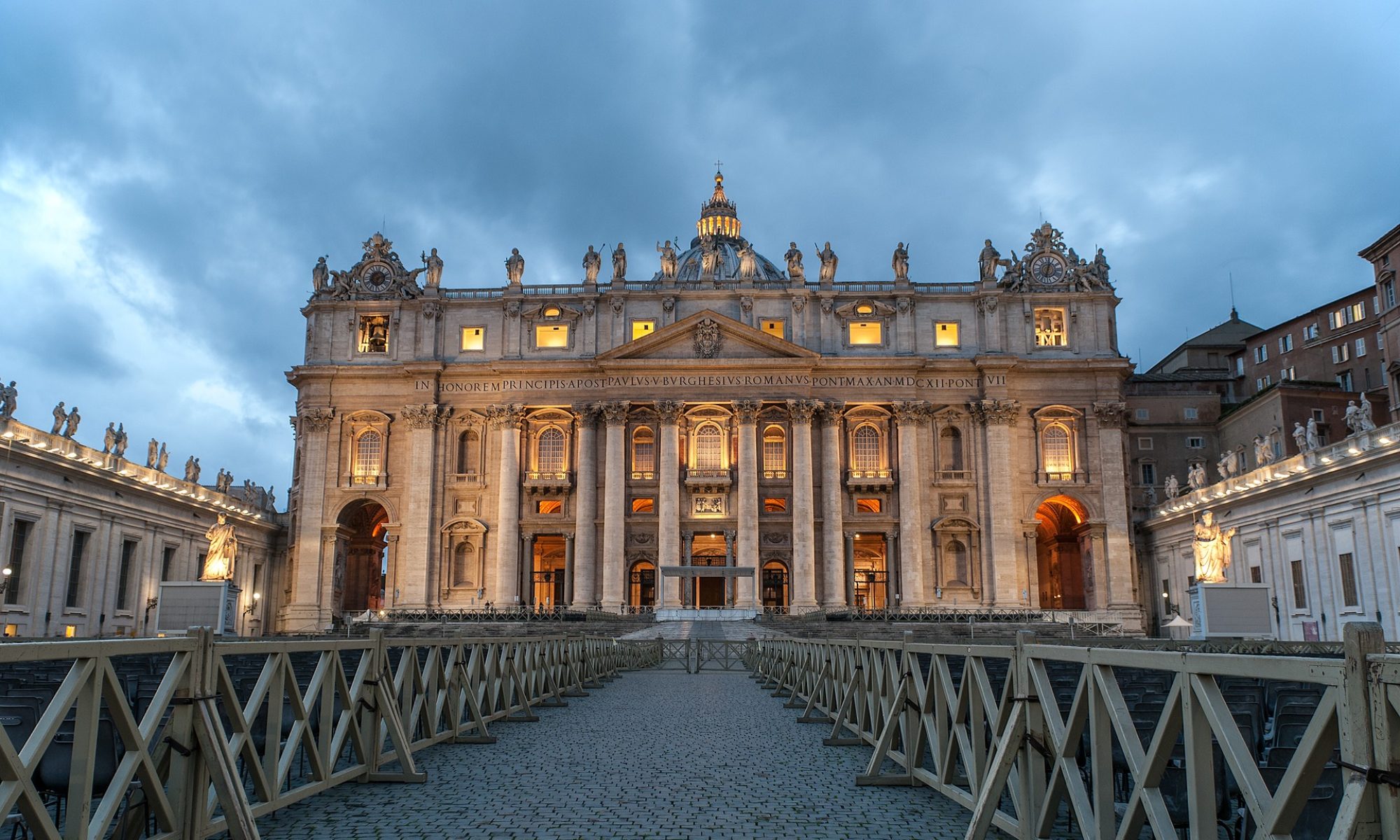July 1st, 2015
As expected, the release of the encyclical Laudato si’ (“Praise be to you”) by Pope Francis was acclaimed as a major contribution to the urgent need for a sustained effort in environmental care. Given the breadth of the issues discussed, with this document the Pope wishes to engage not only the Christians or the like-minded people but “every person living on this planet”. It is possible that Laudato si’ will have an echo in wider circles of the public opinion (e.g. green movements and left-wing political sectors) and for a more prolonged time than a usual papal encyclical. Certainly it is the highest authoritative document that the present Pope has written so far, given that his 2013 first encyclical Lumen Fidei (“The Light of Faith”) was essentially drafted by his predecessor Benedict XVI and that his 2013 Exhortation Evangelii Gaudium (“The Joy of the Gospel”) is hierarchically inferior in the ranking of magisterial documents. More than expounding traditional doctrinal points, Francis wants to underline wide-spread concerns and to show the open-mindedness of the Roman Catholic vision to address them. The reference to a well known prayer by Francis of Assisi in the title reinforces the intention to recall a long tradition and to attract a wide attention.
Environmental Concerns and Roman Catholic Emphases
In 192 pages (a fairly long length for an encyclical), six chapters, the usual invocation to Mary “the Mother and Queen of all creation”, and two closing prayers, Pope Francis delineates his concerns for the deteriorating health of planet earth and calls humanity to take action in order to stop the degenerating process. The remedy to the downgrade trajectory is the adoption of an “integral ecology” which will lead to a “sustainable and integral development”. After analyzing what is happening at our “common home” in terms of pollution and climate change, access to water, loss of biodiversity, decline in the quality of human life, and global inequality, the Pope touches on the cultural and social distortions that cause the present-day ecological crisis (e.g. pervasive technocracy and distorted anthropocentrism) and suggests the “gospel of creation” based on “common good” principles and applied to the social and cultural levels as the solution for it.
The document strikes the cords of the wide-spread environmentalist mentality. At the same time it is part and parcel of the Social Doctrine of the Roman Catholic Church. This means that its analyses and proposals are interspersed with typically Roman Catholic elements. For instance, apart from the Marian title of “Mother and Queen of creation”, there is a strong sacramental language in the final part of the document whereby the Eucharist is presented as the “greatest exaltation” of creation: “Joined to the incarnate Son, present in the Eucharist, the whole cosmos gives thanks to God. Indeed the Eucharist is itself an act of cosmic love”. “In the bread of the Eucharist, creation is projected towards divinization, towards the holy wedding feast, towards unification with the Creator himself” (236). Another specific Catholic emphasis in calling for an “ecological conversion” is the insistence on the role of global agencies and organizations while there is little stress on personal conversion. In the papal document sin has more social than individual dimensions. The thoroughgoing reference to the role of education in overcoming the ecological crisis tends to be a humanistic wishful thinking more than a sober Christian comment that has a realist view of humanity’s ability to deal with its problems.
Evangelical Parallel Resources
Laudato Si’ will prove to be a useful reading to penetrate what is central in the Pope’s vision: the poor, universal brotherhood, a sacramental vision of the world, and an appeal to the secular public opinion. In coming to terms with this encyclical, Evangelicals should be aware of what their own tradition has already produced on these pressing issues.
The 1980 Lausanne Occasional Paper “An Evangelical Commitment to Simple Life-style”(http://www.lausanne.org/content/lop/lop-20) is a compelling reminder of our biblical vocation to live soberly and to promote justice. The 2008 document by the World Evangelical Alliance “Statement on the Care of Creation” (http://www.weacreationcare.org/wp-content/uploads/2014/12/WEA-Statement-on-Care-of-Creation.pdf) tackles the challenges of being faithful stewards of God’s creation in a biblically responsible way. Finally, the 2010 Cape Town Commitment (http://www.lausanne.org/content/ctc/ctcommitment) is a passionate call to a Christian life-style marked by humility, integrity and simplicity.
These documents are much better grounded in the biblical doctrine of creation, the fall, and Christ’s redemption than the papal encyclical. They are also framed in the context of an evangelical concern for evangelism and mission, thus reflecting a more biblical and holistic approach than Laudato Sì’. A comparative study between these evangelical documents and Francis’ encyclical will be a good exercise for all those who want to come to terms with what the two main global Christian families are saying and doing about the environment.

